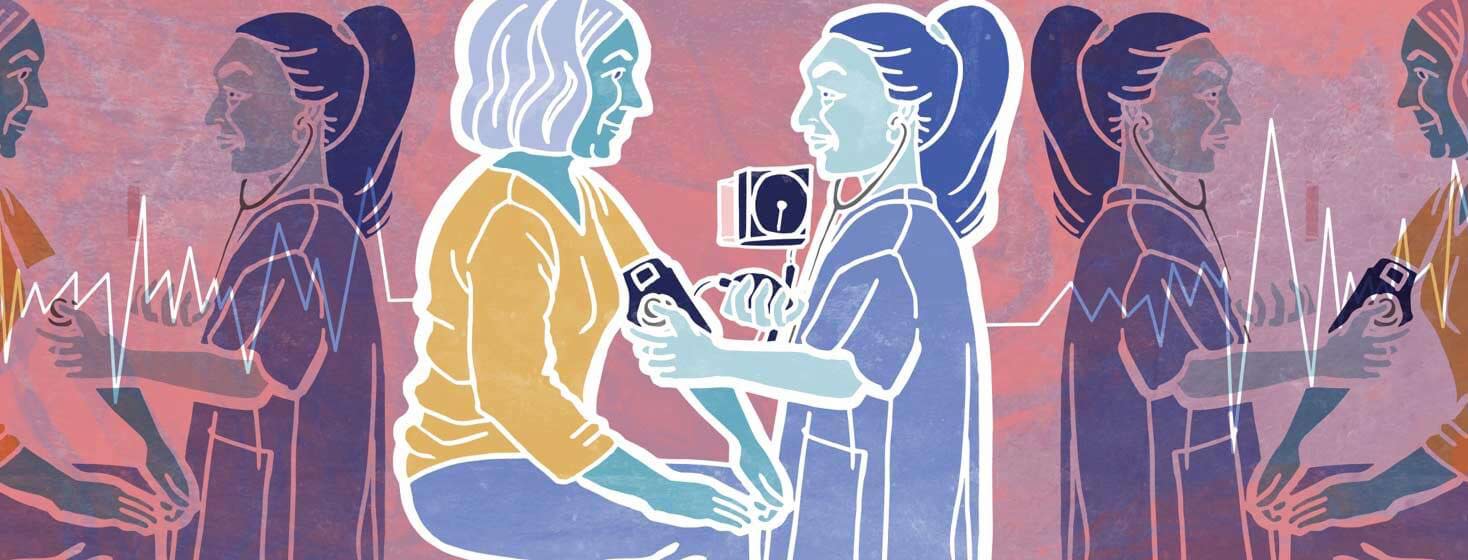What Does Research Say About Ovarian Cancer and Hypertension?
Hypertension, or high blood pressure, is often linked to health risks. However, some research shows that women with ovarian cancer who are also being treated for high blood pressure may have improved outcomes.
What is hypertension?
Blood pressure is the pressure of the blood pushing against the walls of your arteries. Blood pressure can change throughout the day. If it stays too high for too long, it can cause a variety of health issues, including heart disease and kidney problems. Hypertension is blood pressure that is higher than normal.1
Blood pressure is measured and recorded as 2 numbers, such as 120/80. The first number represents the pressure of blood flow through your blood vessels as your heart beats and pushes the blood through the heart. The second number is the pressure in the vessels when the heart rests between beats.1
In most cases, high blood pressure should be treated when it is 130/80. According to guidelines, ranges of blood pressure incude:1
- Healthy – Below 120/80
- Early high – Between 120/80 and 140/90
- High – 140/90 or higher
How is high blood pressure treated?
High blood pressure is treated in many different ways, including:2
- Eating a well-balanced, low-salt diet
- Limit alcohol
- Regular exercise (with the permission of your doctor)
- Maintaining a healthy weight
- Quitting smoking
- Medicine
Medicine is often part of treatment for high blood pressure. Classes of drugs used to help treat hypertension include:3
- Diuretics (water pills)
- Beta-blockers
- ACE inhibitors
- Calcium channel blockers
- Alpha-blockers
- Alpha-2 receptor agonists
- Central agonists
How does treatment for high blood pressure impact ovarian cancer?
While high blood pressure can cause serious health issues, researchers have discovered that certain medicines used to treat hypertension may actually benefit some women with ovarian cancer.4,5
Researchers looked at data from 15 studies of women who had epithelial ovarian cancer. This is a subtype of ovarian cancer that develops from epithelial cells that are on the outer surface of the ovaries. Epithelial tumors are the most common kind of ovarian cancer. There are different types of epithelial ovarian tumors, including endometrioid carcinoma. This type makes up about 20 percent of all epithelial ovarian cancers.4-6
The researchers studied the link between the women who had been diagnosed with ovarian cancer, their history of high blood pressure, and the drugs taken for those conditions. They found that women who had endometrioid ovarian cancer along with high blood pressure had a 46 percent lower risk of ovarian cancer progression.4,5
Researchers also noted that women with ovarian cancer who had a longer history of high blood pressure had reduced mortality rates. However, they found a higher overall risk of death in women who had ever taken beta-blockers.4,5
What does this mean?
Researchers think high blood pressure medicines – specifically diuretics, ACE inhibitors, and calcium channel blockers – may help slow the growth of ovarian tumors. Women treated for hypertension for longer periods of time before being diagnosed with ovarian cancer may also benefit from longer exposure to blood pressure medicines.4,5
While this research shows promising results, it is important to note that it does have limitations. Data from the 15 studies the researchers examined was collected in different ways. Plus, researchers did not have data on women who died from ovarian cancer. Other data was lacking as well, like disease severity and medical records.4
However, the study included a large sample size, which allowed researchers to better examine the link between different subtypes of ovarian cancer and blood pressure drugs. Researchers believe that blood pressure drugs may have an effect on hormone levels and impact ovarian cancer tumors differently depending on the subtype.4
More research is needed to better understand how blood pressure drugs impact the growth of ovarian cancer tumors. That information could have a big impact on how some types of ovarian cancer are treated in the future.4

Join the conversation